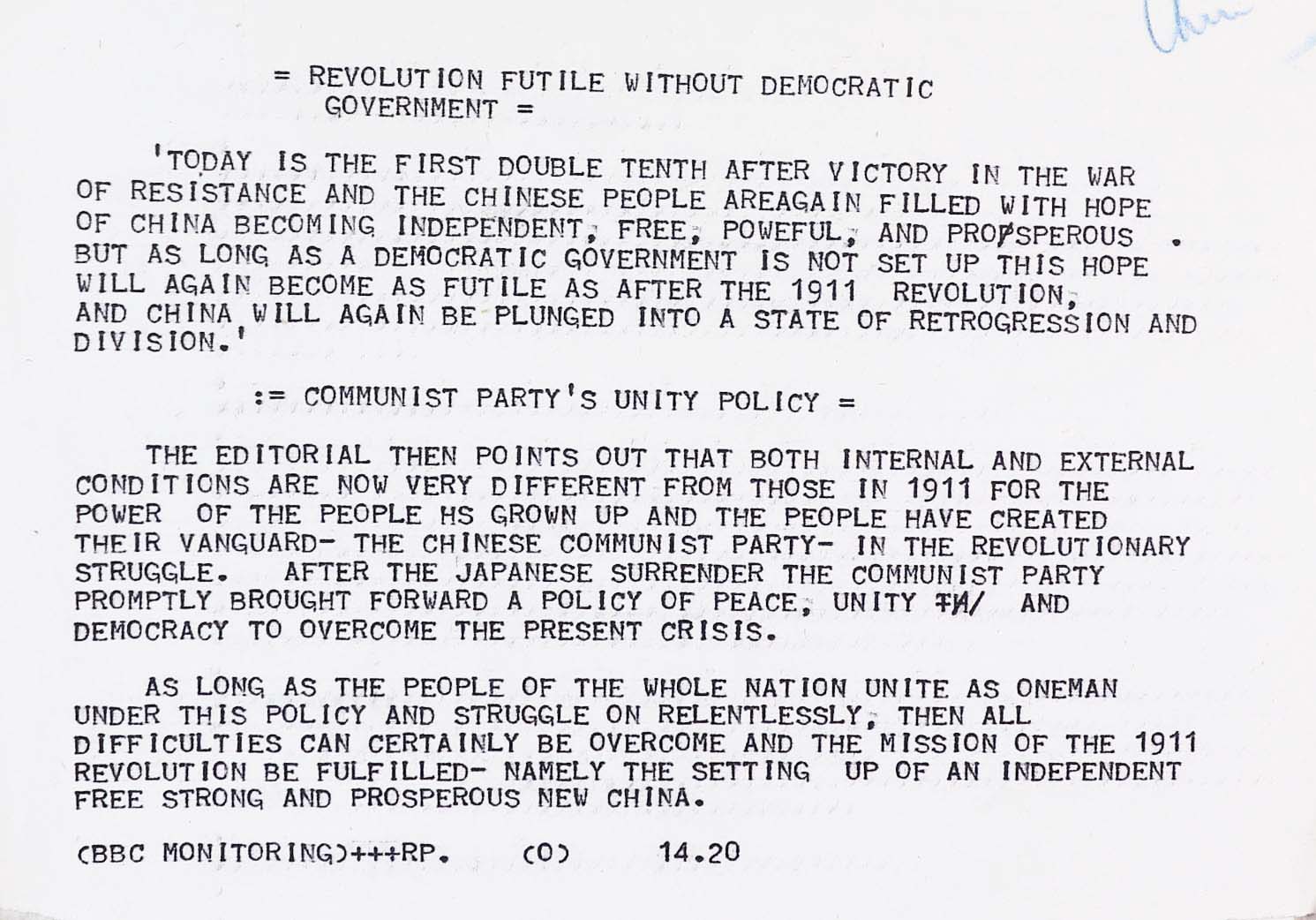
Telegram reporting on an editorial called ‘Without Democracy There Will Not Be Peaceful Reconstruction’ in the Yenan Paper ‘Emancipation Daily’, commemorating the 34th anniversary of the Chinese Revolution of 1911. Catalogue ref: WO 208/4398
Yenan (Yan’an) was the capital of the Communist-controlled area of China and ‘Emancipation Daily’ was a newspaper produced by the Chinese Communist Party. The ‘first double tenth victory’* mentioned in the source refers to an agreement between Kuomintang (KMT) and Chinese Communist Party (CCP) on 10 October 1945, the Double Ten Day of the Republic of China.
Note: The ‘first double tenth victory’* mentioned in the source refers to an agreement between Kuomintang (KMT) and Chinese Communist Party (CCP) on 10 October 1945, the Double Ten Day of the Republic of China.
Transcript
Revolution Futile without democratic government
‘Today is the first double tenth after victory in the war of resistance and the Chinese people are again filled with hope of China becoming independent, free, powerful, and prosperous but as long as a democratic government is not set up this hope will again become as futile as after the 1911 revolution, and China will again be plunged into a state of retrogression and division.’
Communist Party’s Unity Policy
The editorial then points out that both internal and external conditions are now very different from those in 1911 for the power of the people has grown up and the people have created their vanguard – the Chinese Communist Party – in the Revolutionary Struggle. After the Japanese surrender the Communist Party promptly brought forward a policy of peace, unity and democracy to overcome the present crisis.
As long as the people of the whole nation unite as one man under this policy and struggle on relentlessly, then all difficulties can certainly be overcome and the mission of the 1911 revolution be fulfilled – namely the setting up of an independent free strong and prosperous new China.
Task 2: Ideologies of the Kuomintang and the Chinese Communist Party
Use the sources in this section to uncover the different ideologies (beliefs and ideals) of both political parties. These sources relate to the KMT and CCP. Answer the questions for each source, 2a and 2b.
- What is the perspective of the author? How does this affect how you look at the text?
- Why was this source produced?
- What type of source is this?
- How would you describe the ideology of the KMT and CCP based on this text?
- What clues does the text give about reasons for conflict between the KMT and CCP?
